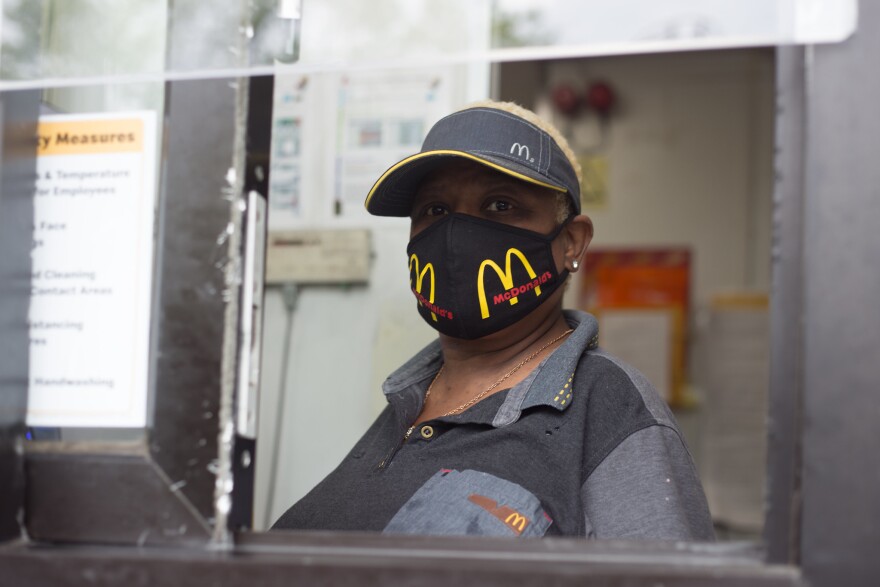Union membership in the United States is at a record low. About 10% of workers nationwide are currently union members, and only 2.7% of workers in North Carolina are unionized, which places the state second-to-last in the nation.
In the past seven months, workers on the front lines have taken up collective action as a means of survival in the face of the coronavirus pandemic. Even without the protections of union representation, healthcare workers risked their jobs to raise the alarm about PPE shortages, and fast-food workers continue striking to improve safety measures. Unionized workplaces were found to be 30% more likely to be inspected for health and safety violations in a recent study, and those benefits extend out into the community. Customers can thank organized grocery workers for increased sanitation and protective shields at stores across the country.

In the Great Depression, despite record unemployment ... lower-skilled workers mobilized and formed massive industrial unions.
With North Carolina’s minimum wage stalled at $7.25 while the cost of living continues to rise, many of the essential workers advocating on behalf of community health are also facing eviction and food insecurity. Host Frank Stasio reflects on a year of labor movements with David Zonderman and Maxwell Millington. Zonderman is a professor and head of the history department at North Carolina State University. Millington is a writer for Cardinal & Pine, part of the Courier Newsroom, a project funded by the progressive non profit Acronym. He is also the host of "The Barbershop (919)" podcast.
North Carolina’s long history of anti-labor law and vigilante violence leaves many workers afraid of retaliation. At the age of 29, Ella May Wiggins was killed for organizing textile workers in western North Carolina. Part of the communist-led National Textile Workers Union, Wiggins united Black and white millworkers in fighting for a 40-hour week and living wages. Stasio talks with Wiggins’ great granddaughter, Kristina Horton, who carries on her ancestor’s legacy through education and an annual celebration of her life and movement.

Musicians will play Wiggins’ ballads and participants will discuss her legacy in a virtual celebration on the anniversary of her death, Saturday, Sept. 12 from 2 p.m. to 3 p.m. Horton is the author of “Martyr of Loray Mill: Ella May and the 1929 Textile Workers' Strike in Gastonia, North Carolina” (McFarland/2015).The textile workers movement went dormant for many decades in the region after the assassination of Wiggins and other intimidation killings.
What if the workers are in charge of the plant?
In Morganton, globalization in the ‘90s shut down plenty of mills, but some drew on the region’s history of labor organizing to rebuild resilient employee-owned factories. Opportunity Threads practices a cooperative structuring that equitably distributes profits back to employees.
The co-op is a member of The Industrial Commons, a network of like-minded small industrial businesses committed to regional economics and the nonprofit affiliate of the Carolina Textile District. The network’s localized agility was on display at the outset of the pandemic, when they were able to rapidly source, test, manufacture and distribute PPE as globally-consolidated companies struggled to move materials and products through closed ports. Stasio talks with Molly Hemstreet, founder of Opportunity Threads and co-executive director of The Industrial Commons, and Walter Vicente, plant manager at Opportunity Threads.
https://www.youtube.com/watch?v=KkVdXve2agU&t=17s&ab_channel=CarolinaTextileDistrict
Special thanks to "De Sol a Sol" from El Enlace Latino NC and Lucy Grindon of The National Catholic Reporter for their assistance with this episode.










